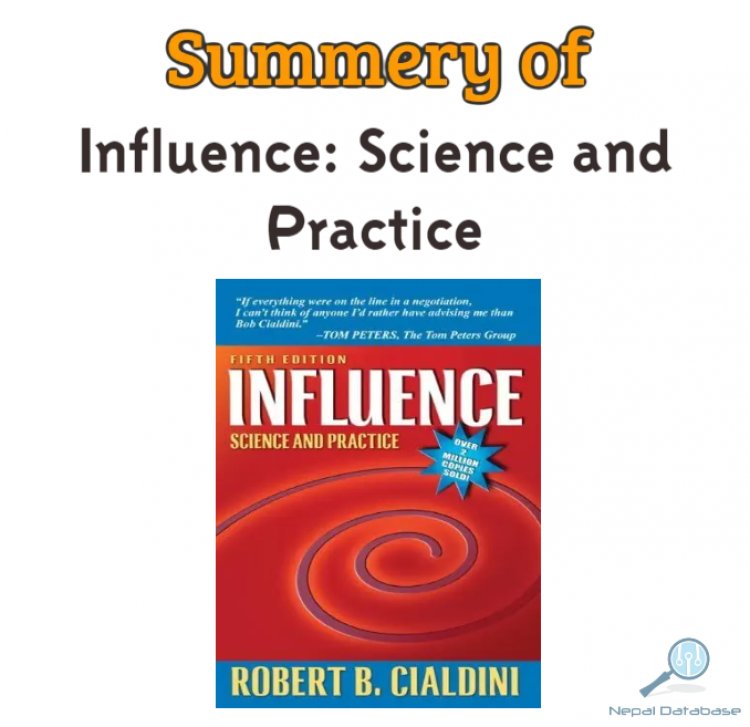Summary of Influence: Science and Practice by Robert Cialdini
Learn the key principles of persuasion discussed in Robert Cialdini's book "Influence: Science and Practice" including reciprocation, commitment and consistency, social proof, authority, liking, and scarcity. Get practical advice on how to use these principles effectively in different settings.

"Influence: Science and Practice" is a book written by Robert Cialdini that explores the psychology of persuasion. The book is based on Cialdini's extensive research on the subject and provides insights into the various factors that influence people to say "yes" to requests.
One of the key principles of persuasion discussed in the book is the principle of reciprocation, which states that people are more likely to comply with a request if they have received something of value first. For example, a salesperson who gives a potential customer a free sample of a product is more likely to be successful in selling the product than a salesperson who doesn't.
Another important principle of persuasion is the principle of commitment and consistency, which states that people are more likely to comply with a request if they have already committed to doing something similar. This can be seen in the use of "foot-in-the-door" techniques, where a small request is made first and then a larger request is made later.
The principle of social proof is also discussed in the book, which states that people are more likely to comply with a request if they believe that others are doing the same. This can be seen in the use of testimonials, where a product or service is endorsed by others.
The principle of authority is also discussed in the book, which states that people are more likely to comply with a request if they believe that the person making the request is an authority figure. This can be seen in the use of titles and uniforms, where a person's authority is indicated by their title or the uniform they are wearing.
The principle of liking is also discussed in the book, which states that people are more likely to comply with a request if they like the person making the request. This can be seen in the use of flattery and similarity, where a person is made to feel good about themselves or is made to feel like they have something in common with the person making the request.
The principle of scarcity is also discussed in the book, which states that people are more likely to comply with a request if they believe that what is being offered is rare or in short supply. This can be seen in the use of limited-time offers and scarcity claims, where a product or service is said to be in limited supply.
The book also includes practical advice on how to use these principles of persuasion in a variety of settings, including business, politics, and personal relationships.
In summary, "Influence: Science and Practice" is a comprehensive guide on the psychology of persuasion, discussing key principles of reciprocation, commitment and consistency, social proof, authority, liking, and scarcity. It provides practical advice on how to use these principles effectively in different settings. The book is based on Cialdini's extensive research on the subject, and provides insights into the various factors that influence people to say "yes" to requests.
What's Your Reaction?







































































































